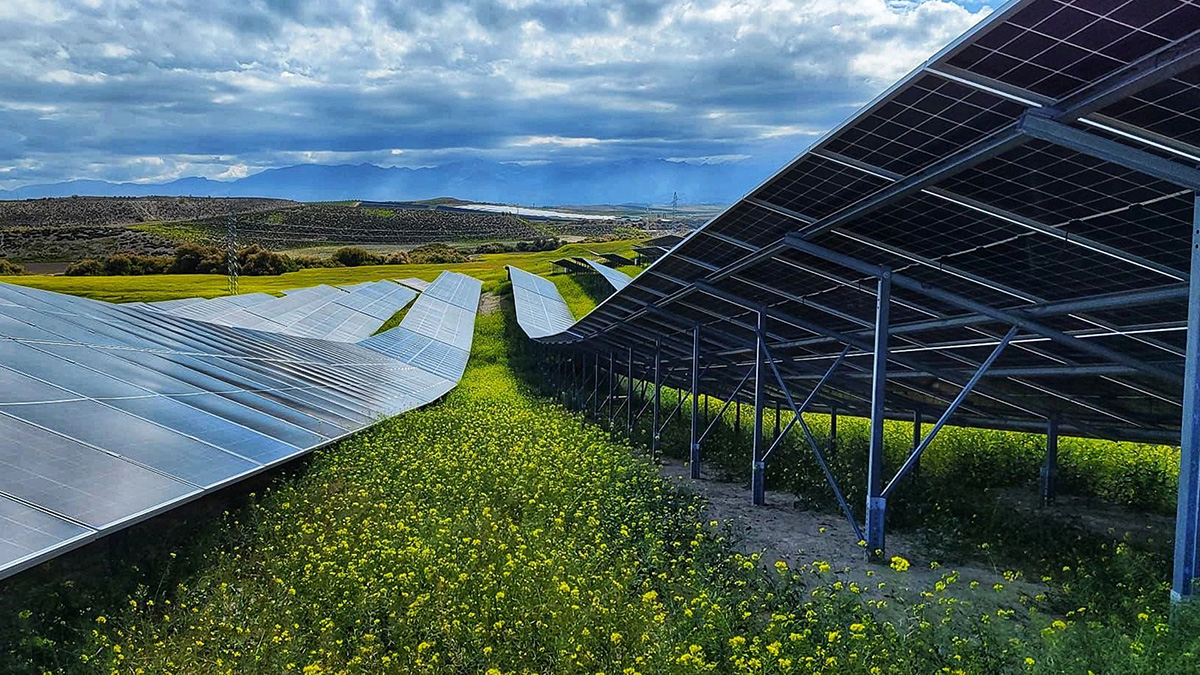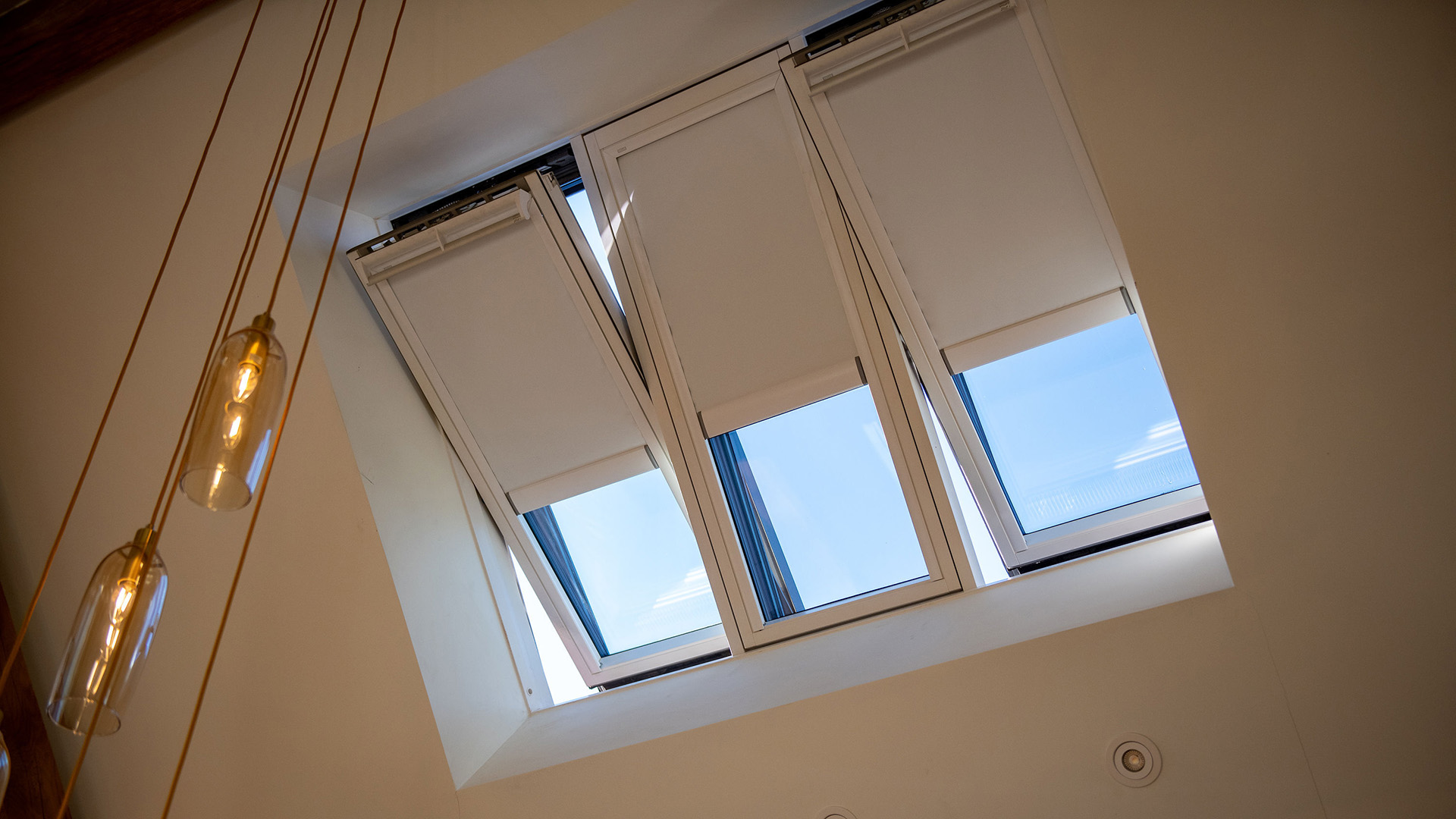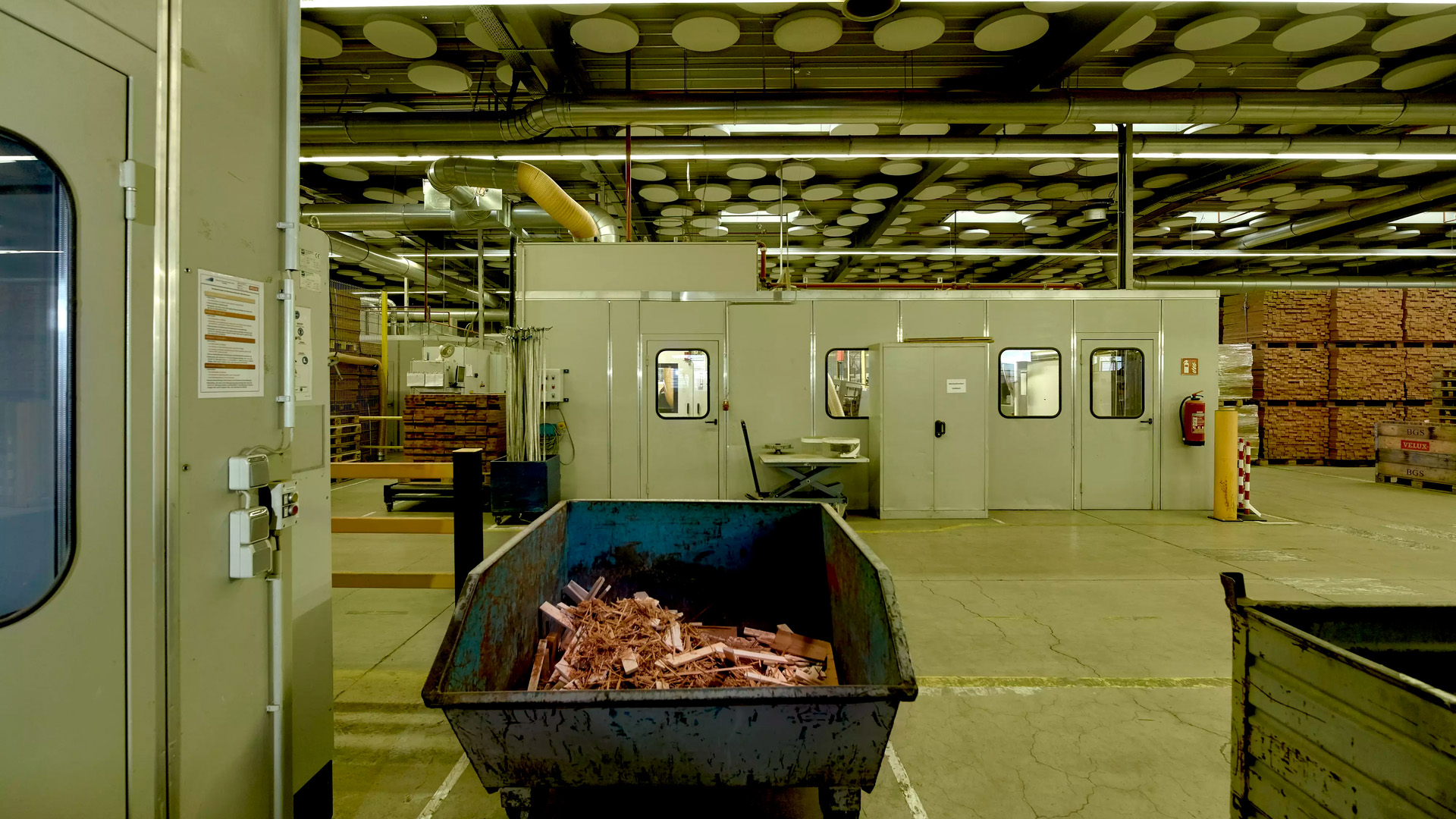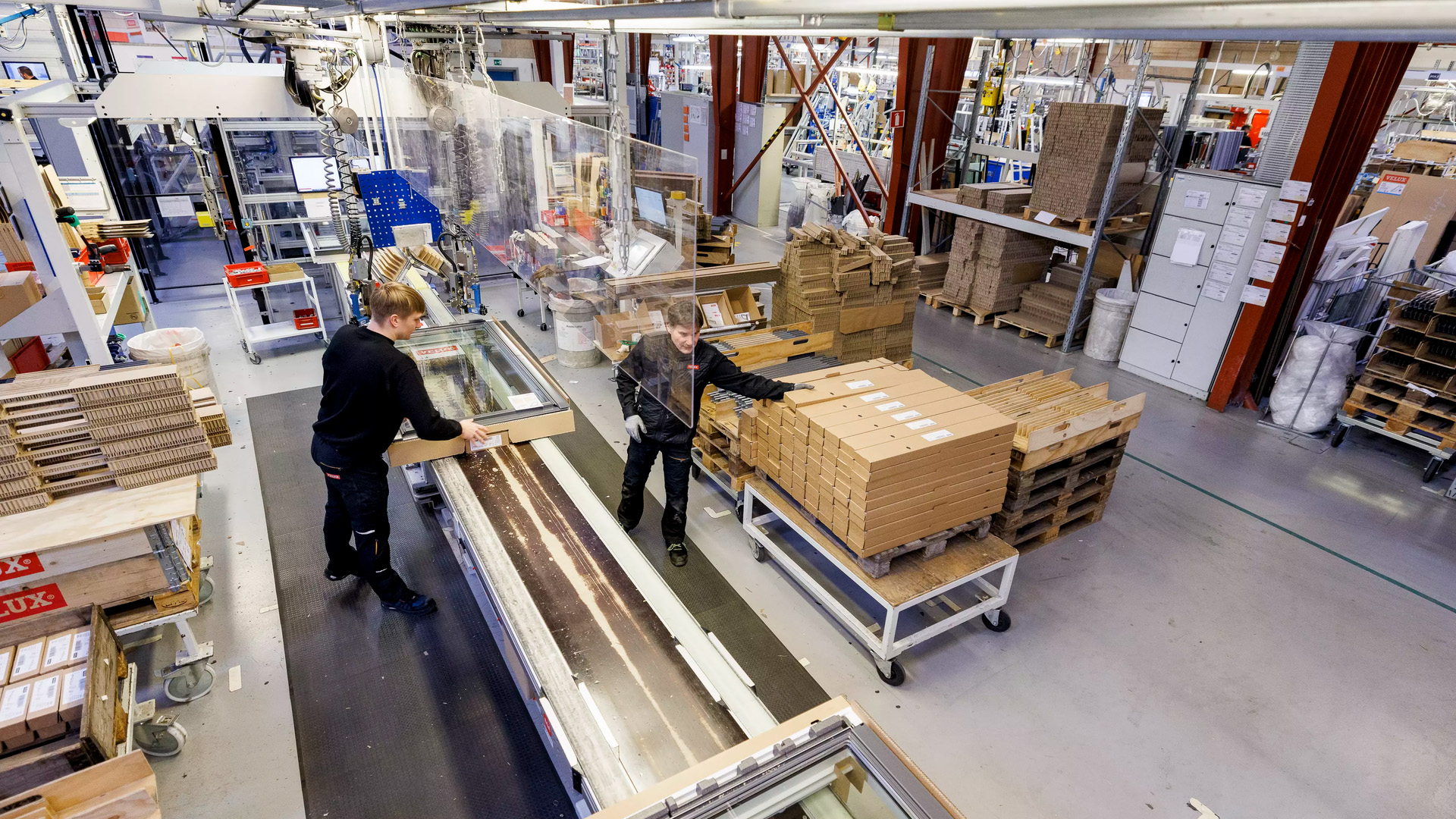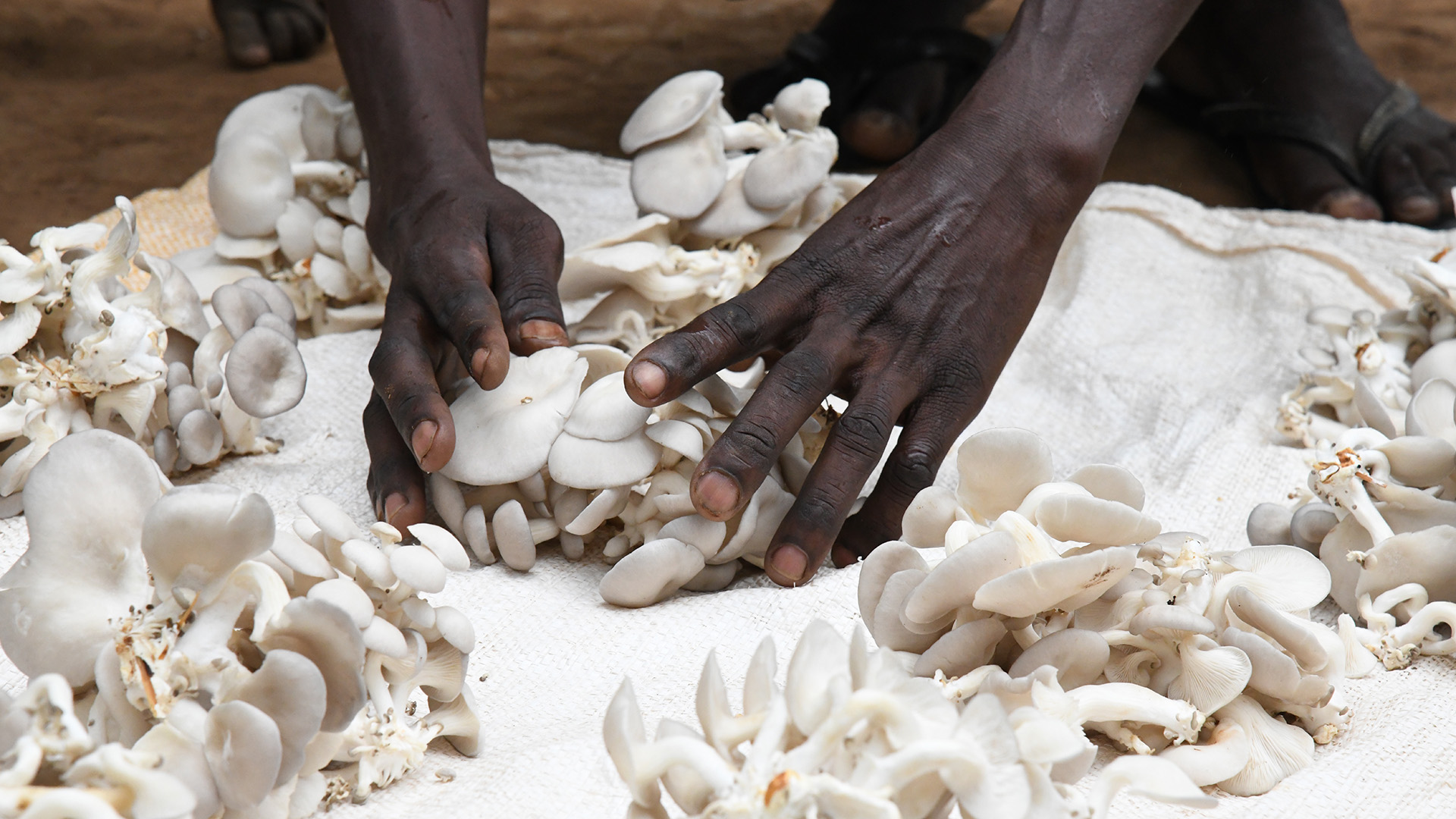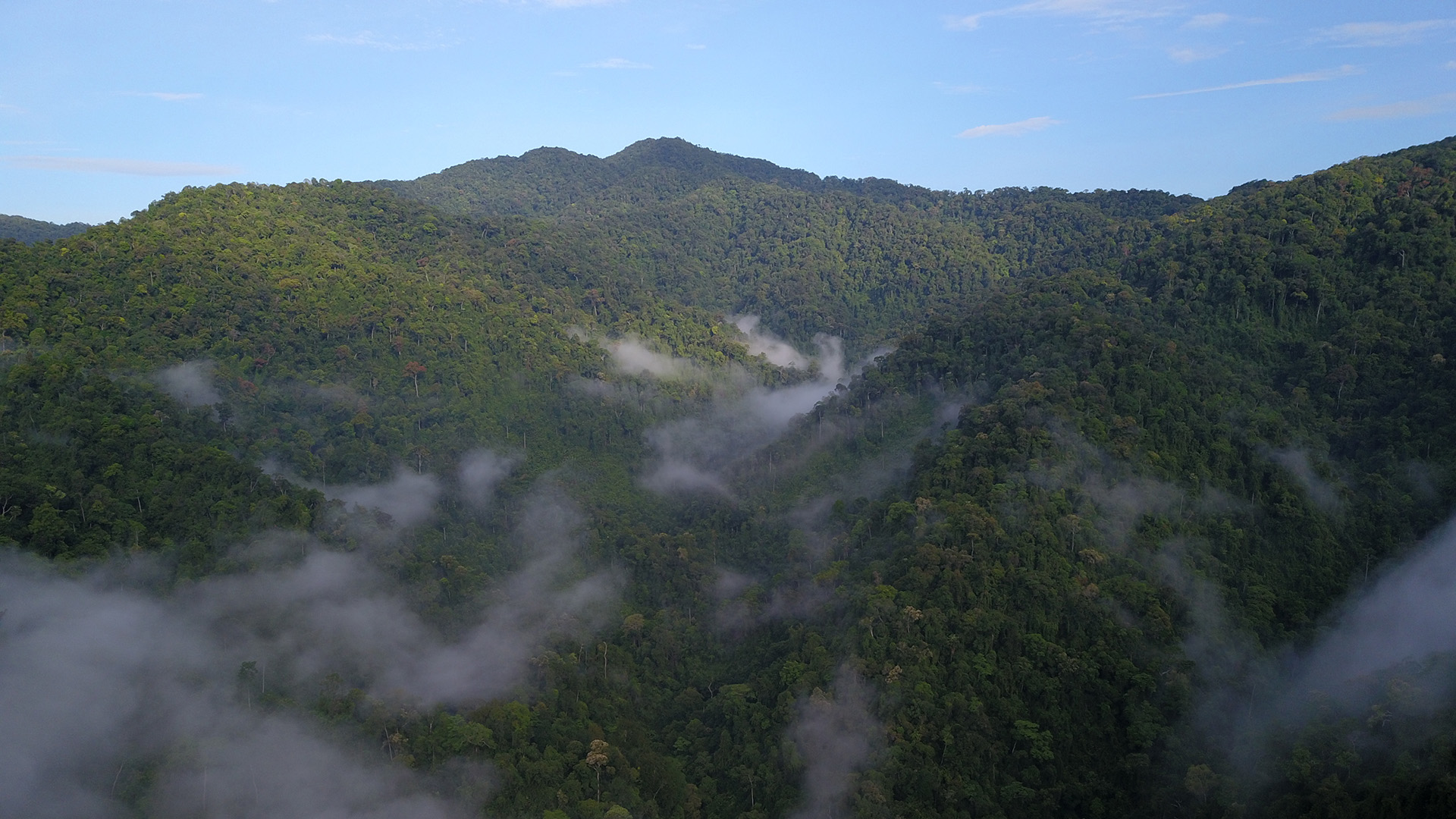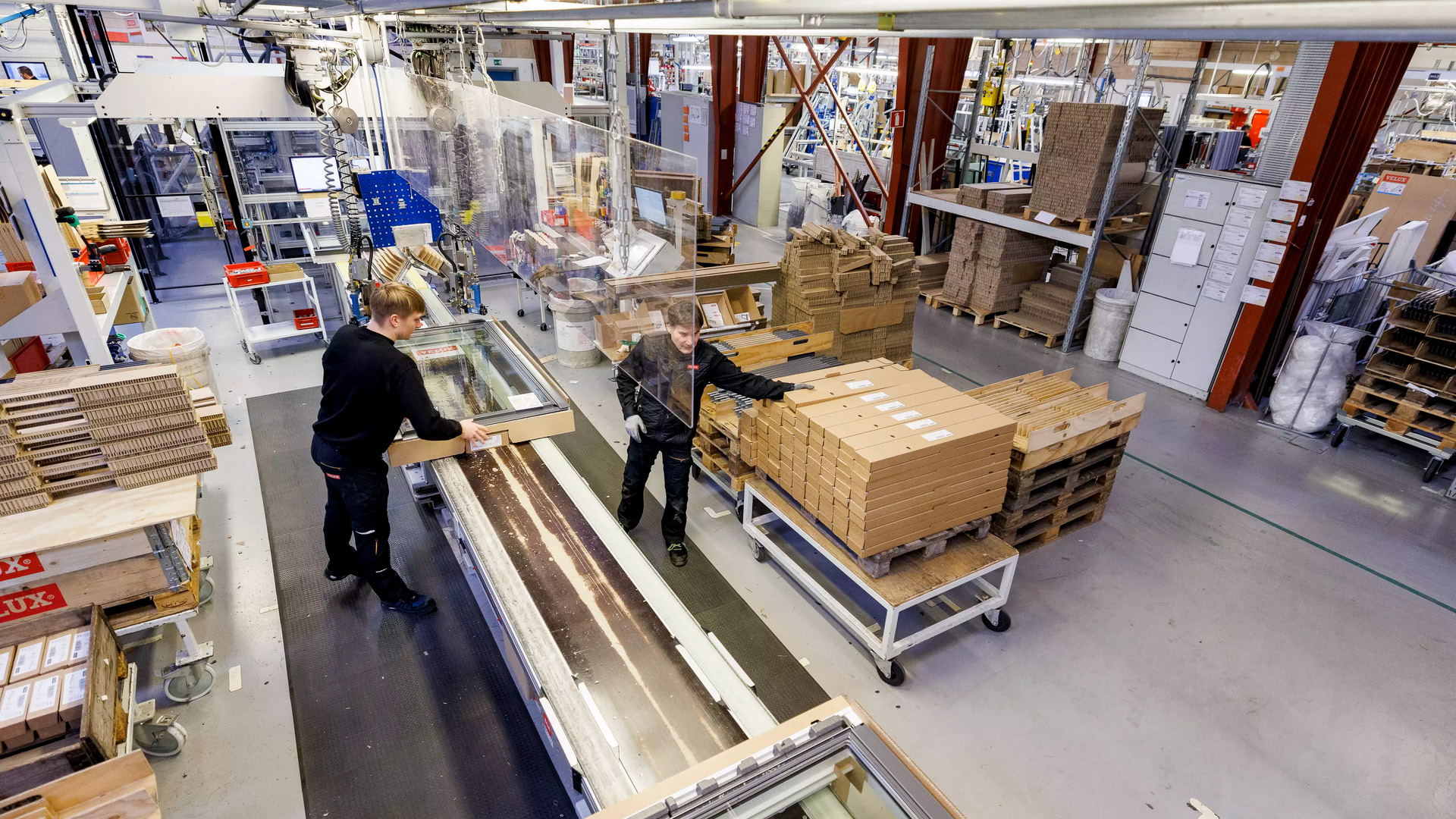
Enabling near-zero emissions in production
As part of the VELUX Group’s ongoing efforts to reduce emissions from our own operations and ultimately to deliver on our target of 100% reduction in our operational emissions, we are continuously improving the energy efficiency of our production process.
Through a combination of efforts at our most energy-consuming production sites, from optimization of paint line ventilation and wood chip extraction to heat pumps and other renewable solutions, we expect to save about 10,000 tonnes of CO2e annually once all of the currently planned projects become operational.
Extracting energy savings
The bioboilers in our production plants run solely on biomass, in the form of wood waste, from the FSC or PEFC-certified wood, generated during the production of our windows. Chip extraction systems suck up wood chips created during the production process and collect them for use in the bioboiler.
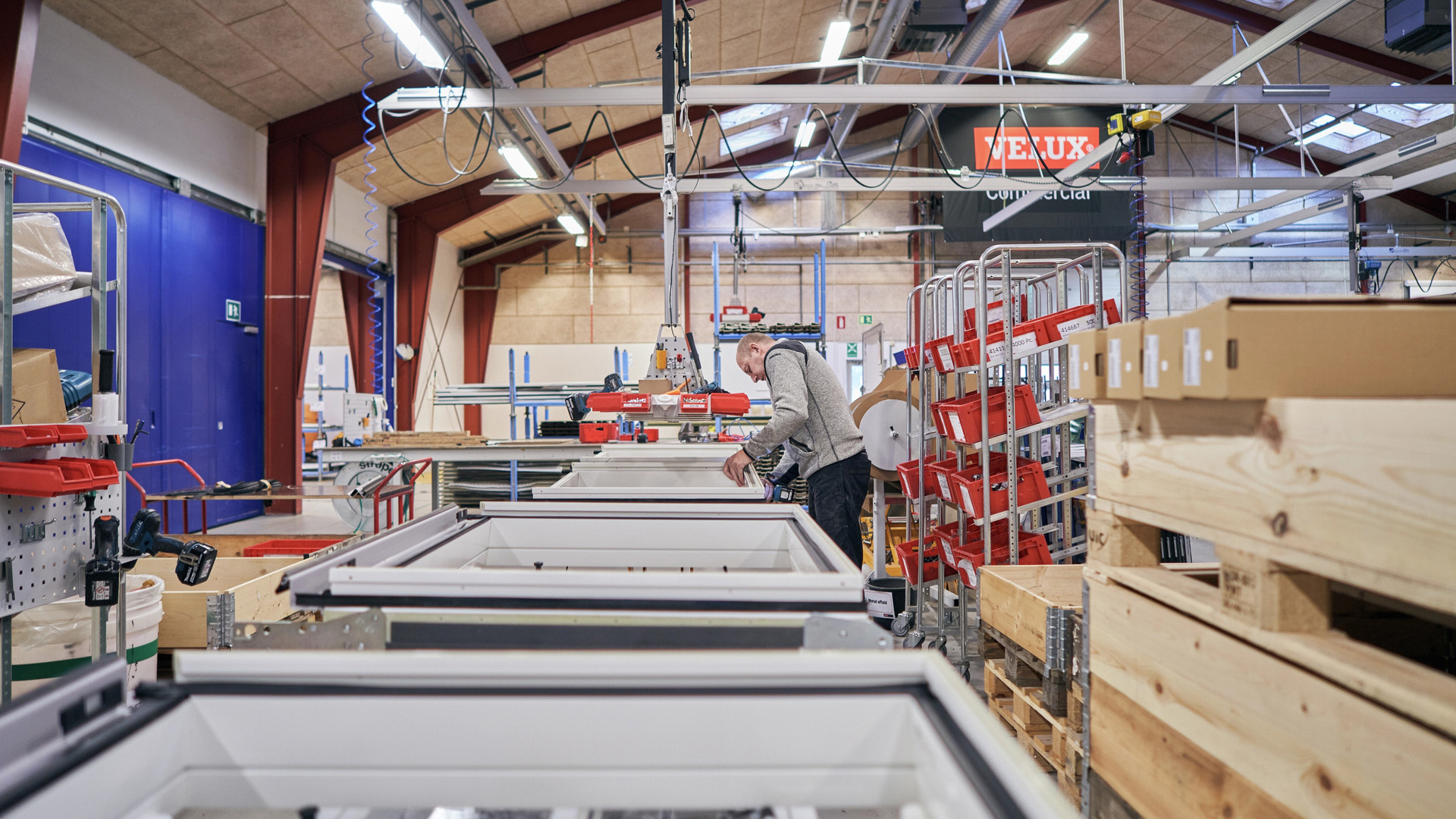
Improving the working environment
Paint line ventilation is highly energy intensive due to the suction processes that serve to remove paint particles from the air during lacquering and drying. The filtering system also involves heat exchange with fresh air outside the building to retain heat while ensuring the indoor air is free from traces of harmful levels of dust and particles. In the new systems, a control mechanism is introduced to ensure that only the necessary suction pipes are powered. This optimisation not only saves energy but also helps to ensure employees are working in a comfortable and well-ventilated space.
Ending our reliance on fossil fuels
These improvements build upon our work to eliminate reliance on fossil fuels in our production processes. In 2023 we invested in two new renewable heating projects, by converting a factory in France to a new bioboiler and connecting a factory in Denmark to renewable district heating.
Investing in renewable energy supports our ambition to minimize the carbon footprint of our own operations (scopes 1 &2). By 2023, we have already more than halved our scope 1&2 emissions, from 52 tonnes CO2e to 23 tonnes CO2e since 2020. This puts us on track to achieving our operational emissions target by 2030.

